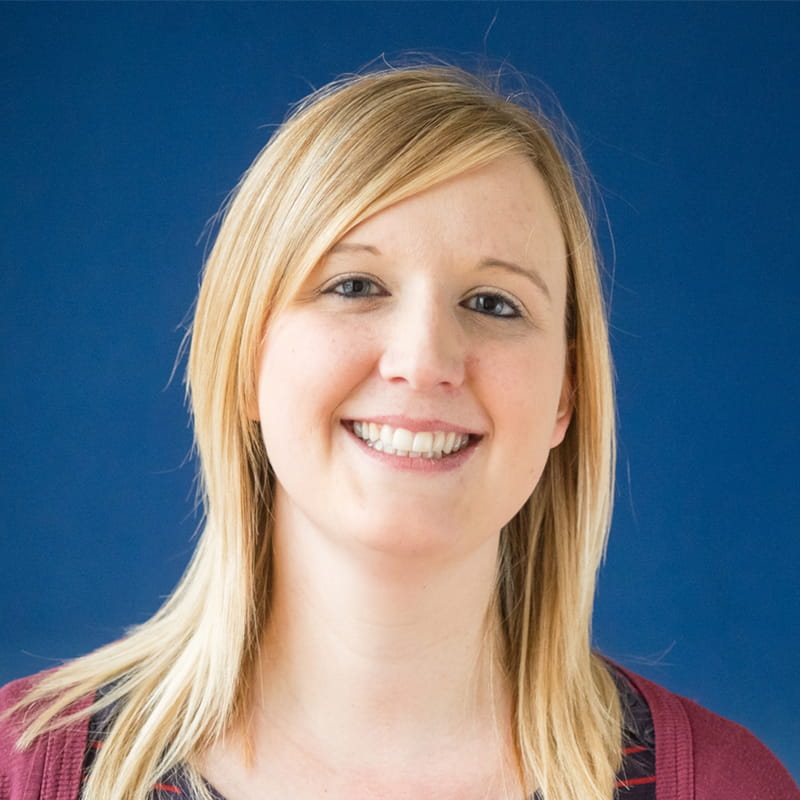2024/25 entry
BA (Hons) Education and Special Educational Needs with Foundation Year
Clearing
Want to study with LJMU this September? Visit our Clearing hub to apply now if you have your grades or register your interest and become a Clearing Insider to receive updates while you wait for your results. Your journey starts with Clearing.
Minimum UCAS points required: TBC
Why study Education and Special Educational Needs with Foundation Year at Liverpool John Moores University?
- Opens up careers in a wide range of areas such as social care, teaching, health and social work
- Broad range of placements opportunities with local schools and links to special needs providers
- Lecturers are passionate about inclusion and this is reflected within the sessions
- Guest speakers deliver sessions from a wide range of relevant professions
- You will be taught in the new Education Building based in the University's Mount Pleasant campus
About your course
Do you want to support people with a range of special educational needs and disabilities throughout their learning journey? This unique degree will develop your critical understanding of education and inclusive practice, leading to a diverse range of careers. We're a team of passionate and experienced lecturers who use research, practice and community links to shape your learning.
Working with people who have disabilities or special educational needs is both challenging and rewarding. It requires an open mind and a flexible approach so that you are able to discard preconceived ideas and embrace alternative views and new ways of working.
Through multidisciplinary enquiry, the course examines the socio-political and historical context that has often marginalised people within particular communities and pockets of society in general. The course engages with topical and controversial issues relating to disability and special needs such as: representation, access to learning, education, employment and health, end of life issues, embryo selection and euthanasia and considers specific needs such as dyslexia, ADHD, language and communication difficulties.
Throughout the course, there is a constant emphasis on the link between theory and practice, in order for students to become critically informed and reflective practitioners.
The course brings together all aspects of education such as the effects of poverty and social exclusion, and curriculum development. Lying at the heart of this course are the needs and rights of children, and your moral and professional role in working with them.
The course explores education in its broadest sense and draws on aspects of sociology, history, politics, psychology and philosophy to provide an understanding of current educational thinking and practice. In your second year of study there is an extended work placement, so that you can gain the experience and practice you need before embarking on further study or a career.
The course gives you enormous scope to tailor your studies to your own interests through optional modules, research and work-related practice.
Please note: Mature applicants with sufficient relevant experience may be invited to attend an interview.
Additional course costs
There are no costs for off site day trips embedded into Core and Option modules. Optional international placements will have a cost attached.
Foundation Year
The Foundation Year offers a supportive environment to develop confidence with academic study skills and also introduces you to key subject specific content relating to your degree pathway. This is a four year degree programme. We particularly welcome applicants with non-standard qualifications.
"This course explores education in its broadest sense and draws on aspects of sociology, history, politics, psychology and philosophy to provide an understanding of current educational thinking and practice"
Professional accreditation/links
We have links with local organisations and schools who provide a range of interesting work placements, including Children's Centres, International Schools, child and adult mental health services and bereavement support organisations.
Fees and funding
There are many ways to fund study for home and international students
Fees
The fees quoted above cover registration, tuition, supervision, assessment and examinations as well as:
- Library membership with access to printed, multimedia and digital resources
- Access to programme-appropriate software
- Library and student IT support
- Free on-campus wifi via eduroam
Additional costs
Although not all of the following are compulsory/relevant, you should keep in mind the costs of:
- accommodation and living expenditure
- books (should you wish to have your own copies)
- printing, photocopying and stationery
- PC/laptop (should you prefer to purchase your own for independent study and online learning activities)
- mobile phone/tablet (to access online services)
- field trips (travel and activity costs)
- placements (travel expenses and living costs)
- student visas (international students only)
- study abroad opportunities (travel costs, accommodation, visas and immunisations)
- academic conferences (travel costs)
- professional-body membership
- graduation (gown hire etc)
Funding
There are many ways to fund study for home and international students. From loans to International Scholarships and subject-specific funding, you'll find all of the information you need on our specialist funding pages.
Employability
This course is ideal if you want to pursue professional qualifications as a teacher (following a PGCE course), special educational needs coordinator or inclusion support coordinator, behaviour support worker or learning mentor. If you prefer to work in the social care and health field, you might want to consider a career as a disability inclusion officer, local authority disability coordinator or disability support worker. Alternatively, your degree could lead to a career in community or charitable organisations.
Postgraduate Teacher Training
LJMU graduates who meet the entry criteria are guaranteed an interview for your chosen PGCE course.
Our PGCEs carry Qualified Teacher Status (QTS), so after successfully completing the one-year course, you will be qualified to teach the age range of students covered in your programme.
As well as our Core PGCE courses, we also offer salaried and non-salaried School-led programmes with our partner schools across the North West.
Student Futures - Careers, Employability and Enterprise Service
A wide range of opportunities and support is available to you, within and beyond your course, to ensure our students experience a transformation in their career trajectory. Every undergraduate curriculum includes Future Focus during Level 4, an e-learning resource and workshop designed to help you to develop your talents, passion and purpose.
Every student has access to Careers Zone 24/7, LJMU's suite of online Apps, resources and jobs board via the LJMU Student Futures website. There are opportunities for flexible, paid and part-time work through Unitemps, LJMU's in-house recruitment service, and we also offer fully funded Discovery Internships.
One-to-one careers and employability advice is available via our campus-based Careers Zones and we offer a year-round programme of events, including themed careers and employability workshops, employer events and recruitment fairs. Our Start-Up Hub can help you to grow your enterprise skills and to research, plan and start your own business or become a freelancer.
A suite of learning experiences, services and opportunities is available to final year students to help ensure you leave with a great onward plan. You can access LJMU's Careers, Employability and Start-up Services after you graduate and return for one-to-one support for life.
Go abroad
LJMU aims to make international opportunities available to every student. You may be able to study abroad as part of your degree at one of our 100+ partner universities across the world. You could also complete a work placement or apply for one of our prestigious worldwide internship programmes. If you wanted to go abroad for a shorter amount of time, you could attend one of our 1-4 week long summer schools.
Our Go Citizen Scheme can help with costs towards volunteering, individual projects or unpaid placements anywhere in the world. With all of these opportunities at your feet, why wouldn’t you take up the chance to go abroad?
Find out more about the opportunities we have available via our Instagram @ljmuglobalopps or email us at: goabroad@ljmu.ac.uk.
A life-changing experience
There's so much more to university than just studying for a degree.
News and views
Browse through the latest stories and updates from the University and beyond
What you will study on this degree
Please see guidance below on core and option modules for further information on what you will study.
This course is currently undergoing its scheduled programme review, which may impact the advertised modules. Programme review is a standard part of the University’s approach to quality assurance and enhancement, enabling us to ensure that our courses remain up to date and maintain their high standard and relevancy.
Once the review is completed, this course website page will be updated to reflect any approved changes to the advertised course. These approved changes will also be communicated to those who apply for the course to ensure they wish to proceed with their application.
Further guidance on modules
Modules are designated core or optional in accordance with professional body requirements, as applicable, and LJMU’s Academic Framework Regulations. Whilst you are required to study core modules, optional modules provide you with an element of choice. Their availability may vary and will be subject to meeting minimum student numbers.
Where changes to modules are necessary these will be communicated as appropriate.
Level 5
Core modules
Professional Project Enquiry
20 credits
The block professional placement is embedded within this module and the aim is to develop knowledge of practices used within educational settings/environments. This module will engage students in reflections of the block professional placement and support the development of student enquiry. Students will reflect on their experiences and engage in the processes necessary to identify an area of research for further exploration
Optional Modules
Schools and the Curriculum
20 credits
This module enables you to learn about schools, the remit and role of the teachers, and key issues in contemporary compulsory education. Learning activities will allow you to apply your knowledge and skills in the study of education to contemporary issues in schools, including those relating to the curriculum, learning and teaching, and the controversial issues surrounding schools and society.
Level 6
Core modules
Dissertation
40 credits
This module allows you to research a topic of your choice, which relates to your programme of study, using a range of data sources and appropriate research methods. Your research will be supported through introductory lectures followed with workshops for group work and practical activities. You will be allocated a supervisor who will meet with you over the research period. Online materials will also be available to guide and support independent study.
Optional Modules
Parents and Schools
20 credits
This module introduces you to the crucial importance of working effectively with parents, and potential barriers to effective parent-practitioner relationships according to social class, gender, ethnicity and special educational needs. The module will enable you to develop a conceptual understanding of key developments relating to home-school collaboration, and how to develop the engagement of parents that you meet as future practitioners. The module will also consider controversy surrounding 'problem' parents and intervention from the state, as well as relevant strategies (used in the classroom and beyond) which may develop parental involvement and home-school collaboration.
Teaching and work-related learning
Excellent facilities and learning resources
We adopt an active blended learning approach, meaning you will experience a combination of face-to-face and online learning during your time at LJMU. This enables you to experience a rich and diverse learning experience and engage fully with your studies. Our approach ensures that you can easily access support from your personal tutor, either by meeting them on-campus or via a video call to suit your needs.
Teaching on the course is via a combination of lectures, seminars, tutorials, workshops, use of ICT, online activities, placement experience and independent learning.
Work-related Learning
The course has a strong element of work-related learning, with a broad range of placement opportunities provided by local organisations and schools. There are guest speakers from Children and Adult Mental Health Services, and bereavement counsellors from children's hospitals and hospices. You might even want to get an international perspective on your future career through work experience abroad.
Work experience is a vital element of your studies as it gives you a chance to put into practice what you have learnt during the course, and gain new skills as well. It will also add real value to your CV, giving you a head start when you come to negotiate your way around the competitive job market.
Support and guidance
Dedicated personal tutor, plus study skills support
You will be assigned a personal tutor who will help and support you to become an independent and autonomous learner as you progress through your course. This kind of one-to-one support is particularly useful for discussing course-related issues or concerns you may have during your studies.
Library Services teams also offer a fantastic range of support and guidance services, including online help guides, online chat facility and on-site help.
Our dedicated Student Advice and Wellbeing (SAW) team provide a wide range of services including accommodation advice, disability support, counselling and money matters.
Assessment
Assessment varies depending on the modules you choose, but will usually include a combination of exams and coursework.
We recognise that all students perform differently depending on how they are being assessed, which is why we use a combination of assessment methods. Coursework may therefore include essays, reports, presentations, newspapers, posters, diaries and a dissertation. Exams are limited to the main core modules.
Constructive feedback is important in helping you to identify your strengths and areas where you may need to put in more work, so this will be provided regularly as you progress through each module.
Course tutors
Our staff are committed to the highest standards of teaching and learning
Dr Karen Broomhead
Programme leader
Karen is Joint Programme Leader (with Dr Mia Smith). She is also the Disability Co-ordinator for the School of Education. Karen is a Fellow of the Higher Education Academy, after completing the PG Cert in Learning and Teaching in Higher Education at LJMU in 2014. She is also a PhD supervisor. Karen completed her PhD at Lancaster University in 2013, which was funded by a studentship awarded by the Economic and Social Research Council. Her PhD thesis focused on the home-school relationships between parents of children with Special Educational Needs (particularly those with Behavioural, Emotional and Social Difficulties) and educational practitioners.
I have over ten years experience of supporting children with Special Educational Needs and Disabilities (SEND) within schools and the community, having worked previously as a Support Worker for children with Autistic Spectrum Conditions, Inclusion Support Worker, Summer School Officer and Teaching Assistant.
Facilities
What you can expect from your School
Based in the Education Building in the heart of the Mount Pleasant campus, the School of Education features a wide range of cutting-edge facilities, including a pedagogy room, lecture rooms, computing facilities and a nearby Forest School for outdoor learning. Students also benefit from independent study spaces, a close-by cafeteria and library, and access to student welfare and support.
The university reserves the right to withdraw or make alterations to a course and facilities if necessary; this may be because such changes are deemed to be beneficial to students, are minor in nature and unlikely to impact negatively upon students or become necessary due to circumstances beyond the control of the university. Where this does happen, the university operates a policy of consultation, advice and support to all enrolled students affected by the proposed change to their course or module.
Further information on the terms and conditions of any offer made, our admissions policy and the complaints and appeals process.










